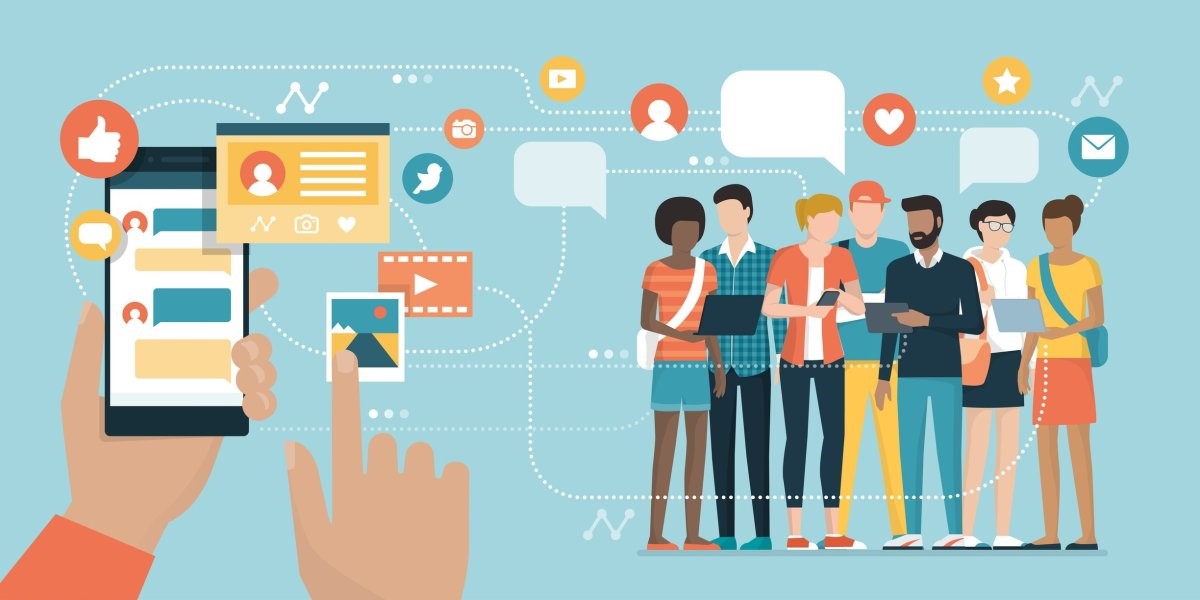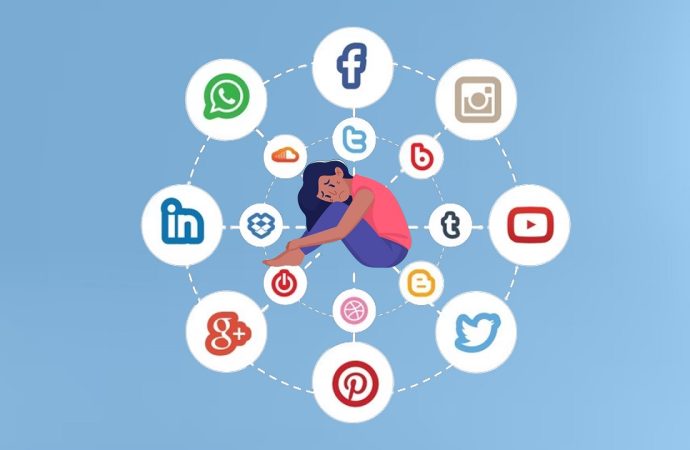In the age of digital connectivity, social media has become an integral part of daily life. Platforms such as Facebook, Instagram, Twitter, and TikTok have revolutionized how we communicate, share information, and perceive the world around us. However, as social media continues to embed itself into the fabric of society, concerns about its impact on
In the age of digital connectivity, social media has become an integral part of daily life. Platforms such as Facebook, Instagram, Twitter, and TikTok have revolutionized how we communicate, share information, and perceive the world around us. However, as social media continues to embed itself into the fabric of society, concerns about its impact on mental health have grown. This article aims to explore the multifaceted relationship between social media and mental health, shedding light on both the positive and negative effects.
The Double-Edged Sword of Social Media
Social media is a double-edged sword, offering both benefits and drawbacks. On one hand, it provides a platform for self-expression, community building, and information dissemination. On the other, it can contribute to feelings of anxiety, depression, and loneliness.
Positive Impacts
Community and Support Networks: Social media can serve as a lifeline for individuals who feel isolated or marginalized. Online communities provide support networks where people can share their experiences and receive encouragement. This is particularly beneficial for those dealing with mental health issues, as it allows them to connect with others facing similar challenges.
Awareness and Education: Platforms like Instagram and Twitter have been instrumental in raising awareness about mental health issues. Campaigns and hashtags such as #MentalHealthAwareness and #EndTheStigma have helped to normalize conversations around mental health, encouraging people to seek help and support.
Accessibility of Resources: The internet is a treasure trove of information, and social media platforms often serve as gateways to mental health resources. From articles and videos to online therapy services, social media makes it easier for individuals to access the help they need.
Negative Impacts
Comparison and Self-Esteem: One of the most significant drawbacks of social media is the tendency for users to compare themselves to others. The curated nature of social media profiles can create unrealistic standards of beauty, success, and happiness. This constant comparison can lead to feelings of inadequacy and low self-esteem.
Cyberbullying: The anonymity and reach of social media make it a breeding ground for cyberbullying. Victims of online harassment often experience increased levels of anxiety, depression, and in extreme cases, suicidal thoughts.
Addiction and Time Management: Social media can be highly addictive, leading to excessive screen time. This addiction can interfere with daily activities, reduce productivity, and contribute to mental health issues such as anxiety and depression.

Image by: Yandex.com
The Psychological Mechanisms at Play
Understanding the psychological mechanisms behind the impact of social media on mental health can provide deeper insights into how and why these effects occur.
Dopamine and Reward Systems
Social media platforms are designed to be engaging, often employing algorithms that trigger the brain’s reward system. Notifications, likes, and comments release dopamine, a neurotransmitter associated with pleasure and reward. While this can create a sense of satisfaction, it can also lead to addictive behaviors as users continually seek that dopamine “hit.”
Fear of Missing Out (FOMO)
The Fear of Missing Out (FOMO) is another psychological phenomenon exacerbated by social media. Constant updates and posts about others’ activities can make individuals feel like they are missing out on exciting experiences, leading to feelings of inadequacy and anxiety.
Social Comparison Theory
Social Comparison Theory suggests that individuals determine their own social and personal worth based on how they stack up against others. Social media amplifies this tendency, as users are constantly exposed to curated and often idealized representations of others’ lives.
Strategies for Mitigating Negative Impacts
While the negative impacts of social media on mental health are concerning, there are strategies that individuals and society can employ to mitigate these effects.
Digital Literacy and Education
Promoting digital literacy is crucial in helping individuals navigate the complexities of social media. Education programs can teach users how to critically evaluate the content they consume and understand the potential psychological impacts of social media use.
Mindful Usage
Encouraging mindful usage of social media can help individuals maintain a healthier relationship with these platforms. This includes setting time limits, taking regular breaks, and being selective about the content consumed.
Supportive Online Communities
Fostering supportive online communities can provide a buffer against the negative impacts of social media. These communities can offer a sense of belonging and provide a platform for positive interactions.
Professional Help and Resources
For those struggling with the negative impacts of social media on their mental health, seeking professional help is essential. Therapists and counselors can provide strategies for managing social media use and addressing underlying mental health issues.
Conclusion
The impact of social media on mental health is a complex and multifaceted issue. While social media offers numerous benefits, including community building, awareness, and accessibility of resources, it also has significant drawbacks, such as contributing to low self-esteem, cyberbullying, and addiction. Understanding the psychological mechanisms at play and employing strategies to mitigate negative impacts can help individuals maintain a healthier relationship with social media. As society continues to grapple with the implications of digital connectivity, it is crucial to prioritize mental health and well-being in the conversation.
















